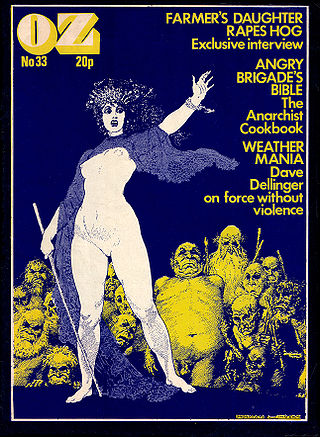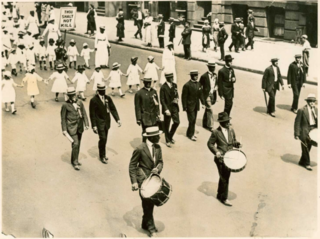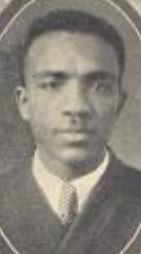Related Research Articles

Thomas Edward Watson was an American Populist and white supremacist politician, attorney, newspaper editor, and writer from Georgia. In the 1890s Watson championed poor farmers as a leader of the Populist Party, articulating an agrarian political viewpoint while attacking business, bankers, railroads, Democratic President Grover Cleveland, and the Democratic Party. He was the nominee for vice president with Democrat William Jennings Bryan in 1896 on the Populist ticket.

The Atlanta Journal-Constitution is the only major daily newspaper in the metropolitan area of Atlanta, Georgia. It is the flagship publication of Cox Enterprises. The Atlanta Journal-Constitution is the result of the merger between The Atlanta Journal and The Atlanta Constitution. The two staffs were combined in 1982. Separate publication of the morning Constitution and the afternoon Journal ended in 2001 in favor of a single morning paper under the Journal-Constitution name.

The terms underground press or clandestine press refer to periodicals and publications that are produced without official approval, illegally or against the wishes of a dominant group. In specific recent Asian, American and Western European context, the term "underground press" has most frequently been employed to refer to the independently published and distributed underground papers associated with the counterculture of the late 1960s and early 1970s in India and Bangladesh in Asia, in the United States and Canada in North America, and the United Kingdom and other western nations. It can also refer to the newspapers produced independently in repressive regimes. In German occupied Europe, for example, a thriving underground press operated, usually in association with the Resistance. Other notable examples include the samizdat and bibuła, which operated in the Soviet Union and Poland respectively, during the Cold War.

Henry Woodfin Grady was an American journalist and orator who helped reintegrate the states of the Confederacy into the Union after the American Civil War. Grady encouraged the industrialization of the South. He was praised by contemporaries and by authors Shavin and Galphin as a civic promoter, political strategist and captivating speaker, and by Atlanta journalist Frederick Allen as a visionary. However, in modern times, Grady's arguments for the need for white supremacy in the post–Civil War South have resulted in his legacy being seen as mixed and overtly racist. Grady's name has been removed from several schools including Atlanta's former Grady High School. Grady was the father-in-law of Federal Reserve Chairman Eugene Robert Black and grandfather of banker and World Bank President Eugene R. Black Sr.
An alternative newspaper is a type of newspaper that eschews comprehensive coverage of general news in favor of stylized reporting, opinionated reviews and columns, investigations into edgy topics and magazine-style feature stories highlighting local people and culture. Its news coverage is more locally focused, and their target audiences are younger than those of daily newspapers. Typically, alternative newspapers are published in tabloid format and printed on newsprint. Other names for such publications include alternative weekly, alternative newsweekly, and alt weekly, as the majority circulate on a weekly schedule.
James Furman Bisher was a newspaper sports writer and columnist for The Atlanta Journal-Constitution in Atlanta, Georgia.

Creative Loafing is an Atlanta-based publisher of a monthly arts and culture newspaper/magazine. The company publishes a 60,000 circulation monthly publication which is distributed to in-town locations and neighborhoods on the first Thursday of each month. The company has historically been a part of the alternative weekly newspapers association in the United States.

Ralph Emerson McGill was an American journalist and editorialist. An anti-segregationist editor he published the Atlanta Constitution newspaper. He was a member of the Peabody Awards Board of Jurors, serving from 1945 to 1968. He won a Pulitzer Prize for editorial writing in 1959.

The history of American newspapers begins in the early 18th century with the publication of the first colonial newspapers. American newspapers began as modest affairs—a sideline for printers. They became a political force in the campaign for American independence. Following independence the first amendment to U.S. Constitution guaranteed freedom of the press. The Postal Service Act of 1792 provided substantial subsidies: Newspapers were delivered up to 100 miles for a penny and beyond for 1.5 cents, when first class postage ranged from six cents to a quarter.

Lerone Bennett Jr. was an African-American scholar, author and social historian who analyzed race relations in the United States. His works included Before the Mayflower (1962) and Forced into Glory (2000), a book about U.S. President Abraham Lincoln.

African American newspapers are news publications in the United States serving African American communities. Samuel Cornish and John Brown Russwurm started the first African American periodical, Freedom's Journal, in 1827. During the Antebellum South, other African American newspapers sprang up, such as The North Star, founded in 1847 by Frederick Douglass.
Real Times Media LLC is the owner and publisher of the Chicago Defender, the largest and most influential African American weekly newspaper, as well as five other regional weeklies in the eastern and Midwestern United States. Its headquarters are in Midtown Detroit.

The anti-lynching movement was an organized political movement in the United States that aimed to eradicate the practice of lynching. Lynching was used as a tool to repress African Americans. The anti-lynching movement reached its height between the 1890s and 1930s. The first recorded lynching in the United States was in 1835 in St. Louis, when an accused killer of a deputy sheriff was captured while being taken to jail. The black man named Macintosh was chained to a tree and burned to death. The movement was composed mainly of African Americans who tried to persuade politicians to put an end to the practice, but after the failure of this strategy, they pushed for anti-lynching legislation. African-American women helped in the formation of the movement, and a large part of the movement was composed of women's organizations.
The following is a timeline of the history of the city of Atlanta, Georgia, United States.

Emmett Jay Scott was a journalist, founding newspaper editor, government official and envoy, educator, and author. He was Booker T. Washington's closest adviser at the Tuskegee Institute. He was responsible for maintaining Washington's nationwide "machine," with its close links to the black business leadership, white philanthropists, and Republican politicians from the local level to the White House. After Washington's death, Scott lost his Tuskegee connection, but moved to Washington, D.C. as Special Adviser of Black Affairs to Secretary of War Newton D. Baker. Scott was the highest-ranking African-American in President Woodrow Wilson's administration. After 1919, he was less and less visible in national affairs, with the NAACP taking the leadership role that Booker T. Washington had dominated.

The Atlanta Daily World is the oldest black newspaper in Atlanta, Georgia, founded in 1928. Currently owned by Real Times Inc., it publishes daily online. It was "one of the earliest and most influential black newspapers."
The Chicago Defender is a Chicago-based online African-American newspaper. It was founded in 1905 by Robert S. Abbott and was once considered the "most important" newspaper of its kind. Abbott's newspaper reported and campaigned against Jim Crow-era violence and urged black people in the American South to settle in the north in what became the Great Migration. Abbott worked out an informal distribution system with Pullman porters who surreptitiously took his paper by rail far beyond Chicago, especially to African American readers in the southern United States. Under his nephew and chosen successor, John H. Sengstacke, the paper dealt with racial segregation in the United States, especially in the U.S. military, during World War II. Copies of the paper were passed along in communities, and it is estimated that at its most successful, each copy was read by four to five people.

Aurelius Southall Scott was an American educator and newspaper editor. Scott made national headlines in 1946, when he ran for public office in Georgia; he was arrested and institutionalized to force an end to his campaign.

Julia Collier Harris was an American writer and journalist. She wrote the earliest biography of Joel Chandler Harris, her husband's father. As owners and publishers of the Columbus Enquirer Sun she and her husband won the 1926 Pulitzer Prize for Public Service. She has been inducted into three Georgia halls of fame: Georgia Newspaper Hall of Fame, Georgia Writers Hall of Fame, and Georgia Women of Achievement.
References
Citations
- 1 2 Aiello 2018, p. 1.
- ↑ Teel 1989, p. 170.
- ↑ Aiello 2018, pp. 1, 110.
- ↑ Aiello 2018, pp. 23, 31.
- ↑ Aiello 2018, p. 37.
- ↑ Aiello 2018, p. 30.
- ↑ Teel 1989, p. 178.
- ↑ Aiello 2018, p. 108.
- ↑ Aiello 2018, pp. 110, 116.
- ↑ Aiello 2018, pp. 116–117.
- ↑ Aiello 2014, p. 200.
- ↑ Carroll 2022, p. 163.
- ↑ Aiello 2018, pp. 7–8, 23–24, 38, 83, 104, 124, 187, 198.
- ↑ Aiello 2018, p. 165–166.
- ↑ Aiello 2018, p. 173.
- ↑ Aiello 2018, p. 185.
- ↑ Aiello 2018, p. 186.
- ↑ Aiello 2014, p. 201.
Works cited
- Aiello, Thomas (2014). "Violently amorous: The Jackson Advocate, the Atlanta Daily World, and the limits of syndication". Journal of Mississippi History . 76 (3/4): 183–201. SSRN 3755022.
- Aiello, Thomas (2018). The grapevine of the South: The Scott Newspaper Syndicate in the generation before the civil rights movement. Print Culture in the South. University of Georgia Press. ISBN 9780820354477.
- Carroll, Brian (2022). "Darktown: Newspaper coverage of Atlanta's first black police, 1930–1960". American Journalism . 39 (2): 142–168. doi:10.1080/08821127.2022.2064363.
- Teel, Leonard Ray (1989). "W. A. Scott and the Atlanta World". American Journalism . 6 (3): 158–178. doi:10.1080/08821127.1989.10731195.